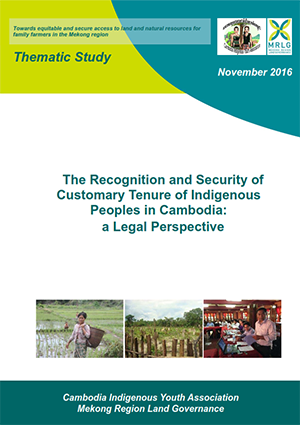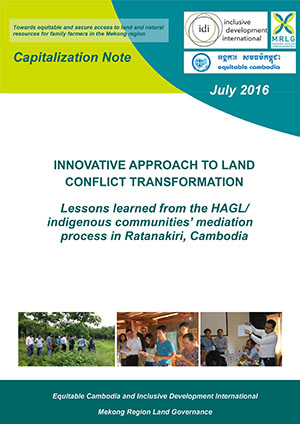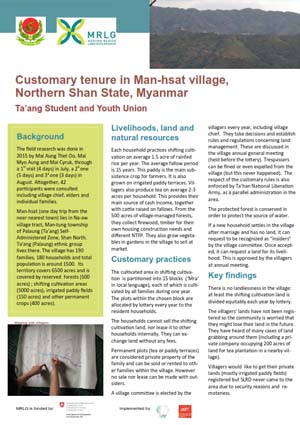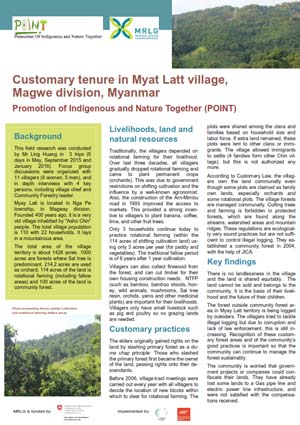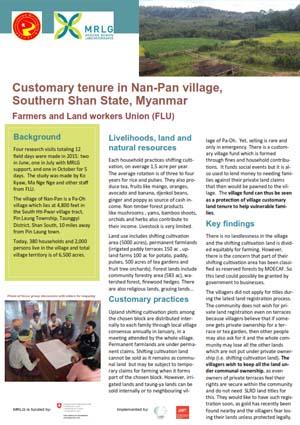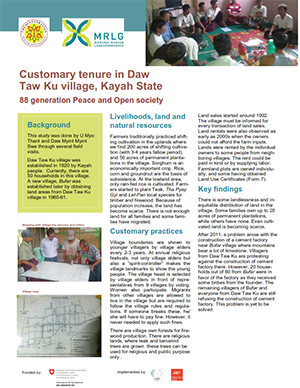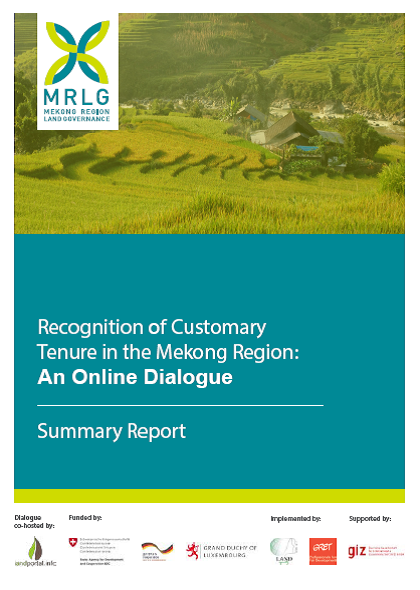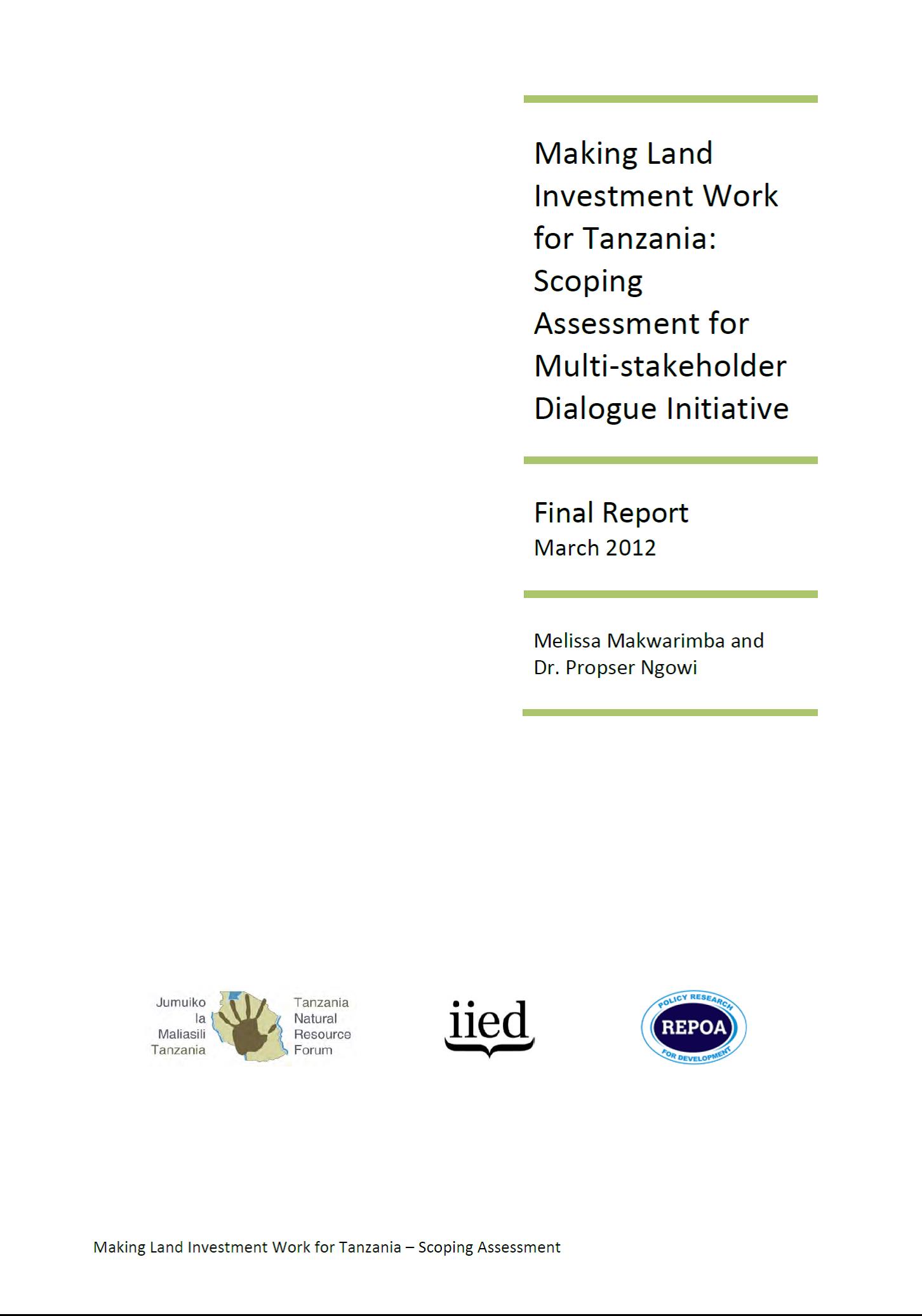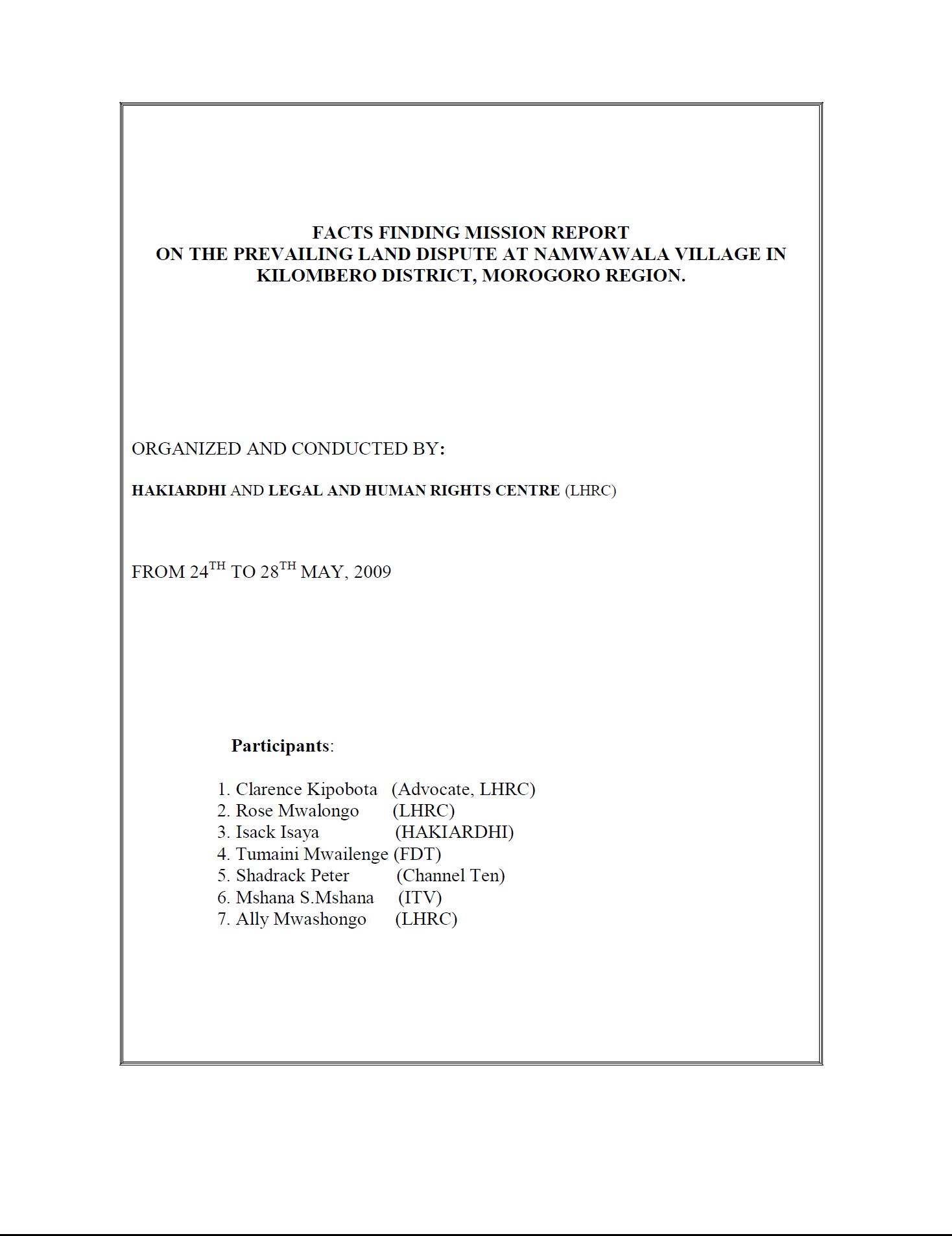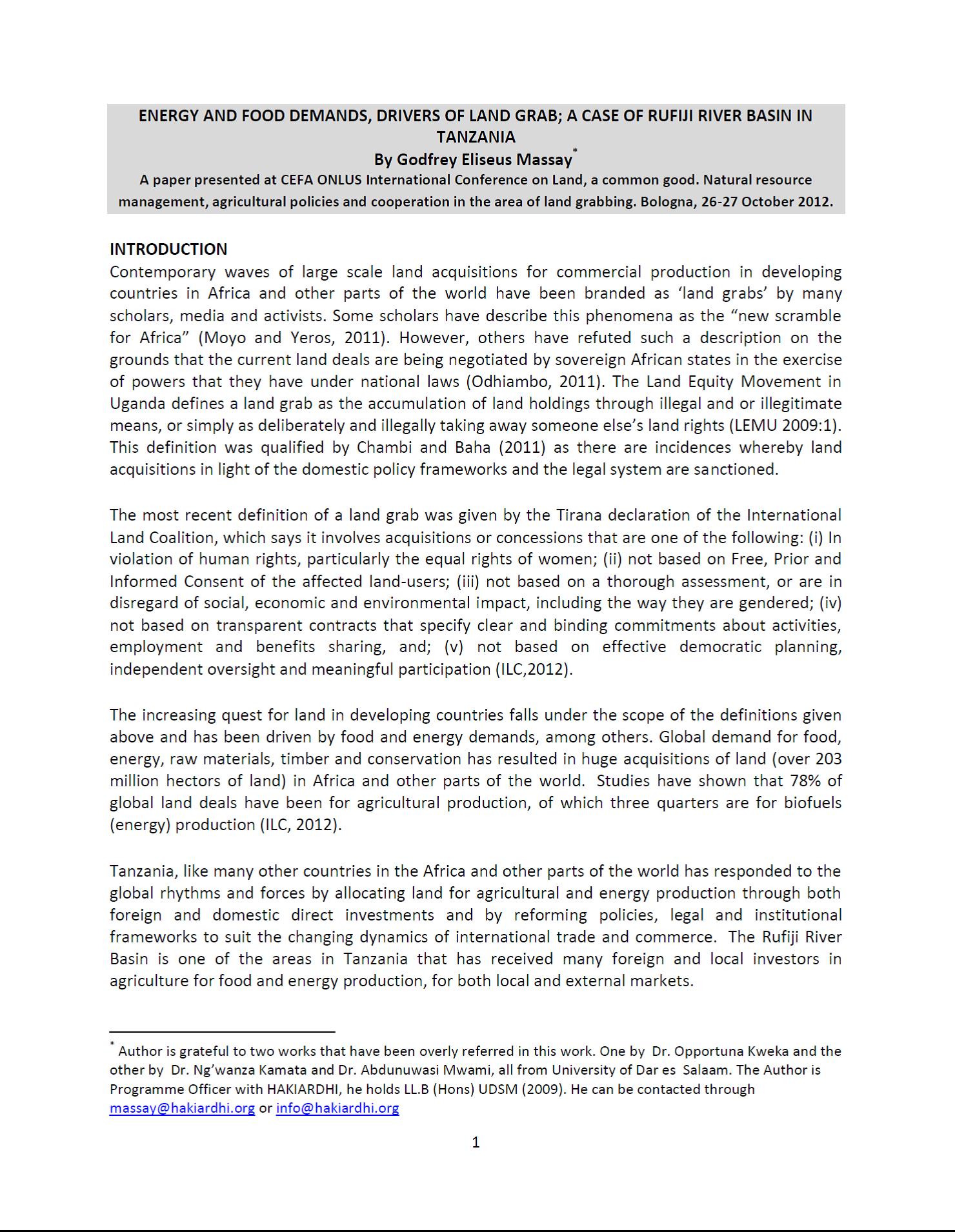The Recognition and Security of Customary Tenure of Indigenous Peoples in Cambodia: a Legal Perspective
This short thematic study challenges the assumption that the legal framework to recognize and protect indigenous peoples’ (IP) customary lands is adequate and that the challenge lies in its implementation. With support from MRLG, a core group of IP NGOs of the Cambodia Indigenous Peoples Alliance (CIPA) held a series of seminars to scrutinize this legal framework, identify gaps and make recommendations for a revision of the supporting legal framework. The thematic study documents this joint reflection.

